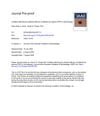Search
forLearn
5 / 12 resultslearn Thymosin Beta 4
learn Osteopontin
signaling protein that, when suppressed, may grow hair by reducing inflammation and stem cell loss
learn Hair Multiplication
extract, clone, and reinsert your own hair cells
learn Stem Cell Factor
Research
5 / 1000+ results
research Variables Affecting the Potential Efficacy of Platelet-Rich Plasma in Dermatology
Many factors, like patient health and how PRP is made, can affect how well PRP therapy works in skin treatments.

research Platelet-Rich Plasma for Treating Androgenic Alopecia: A Systematic Review
More research is needed to confirm if Platelet-Rich Plasma (PRP) is effective for treating hair loss.

research Impact of Different Preparation Methods to Obtain Autologous Non-Activated Platelet-Rich Plasma and Activated Platelet-Rich Plasma in Plastic Surgery: Wound Healing and Hair Regrowth Evaluation
Different methods of preparing Platelet-Rich Plasma (PRP) can affect wound healing and hair regrowth in plastic surgery. Using a kit with specific standards helps isolate PRP that meets quality criteria. Non-Activated PRP and Activated PRP have varying effects depending on the tissue and condition treated. For hair regrowth, Non-Activated PRP increased hair density more than Activated PRP. Both treatments improved various aspects of scalp health.

research A Randomized Blinded Retrospective Study: The Combined Use of Micro-Needling Technique, Low-Level Laser Therapy, and Autologous Non-Activated Platelet-Rich Plasma Improves Hair Re-Growth in Patients with Androgenic Alopecia
Using micro-needling, low-level laser therapy, and platelet-rich plasma together significantly improves hair growth in people with hair loss.

research Evaluation of Non-Activated and Activated PRP in Hair Loss Treatment: Role of Growth Factor and Cytokine Concentrations Obtained by Different Collection Systems
PRP treatment improves hair growth, and the device used can affect results, with some being more effective.
Community Join
5 / 1000+ resultscommunity Comprehensive Microneedling Guide
Microneedling for hair restoration involves daily use of a 0.3 mm device and weekly use of a 0.5 mm device. Combining microneedling with Minoxidil can enhance hair growth.

community If You Have DUPA, PLEASE READ THIS: Everyone Should Be Scalp Biopsied
Scalp biopsies are crucial for diagnosing hair loss conditions like Diffuse Unpatterned Alopecia (DUPA) and retrograde hair loss, as treatments like finasteride and dutasteride may not be effective if other conditions are present. Combining PPAR-GAMMA agonists with retinoids could improve treatments for conditions like Lichen Planopilaris.
community My derm said they came up with a new serum that is better then fin? What’s y’all’s thoughts
A new serum claims to enhance hair regrowth by amplifying oxygen delivery, improving the effectiveness of treatments like exosomes and peptides. Users are skeptical, questioning its efficacy compared to established treatments like Minoxidil and Finasteride.
community Story time! The Great Unbalding (PP405)
PP405 is a promising new hair loss treatment that may reactivate dormant hair follicles without side effects. It could surpass traditional treatments like minoxidil and finasteride if successful in further trials.
community How is it possible for someone to be a non responder to ORAL minoxidil?
Some individuals do not respond to oral minoxidil for hair loss, despite it generally working by improving blood flow to hair follicles. Factors like metabolism, drug interactions, and individual variations in the drug's activation may influence its effectiveness.